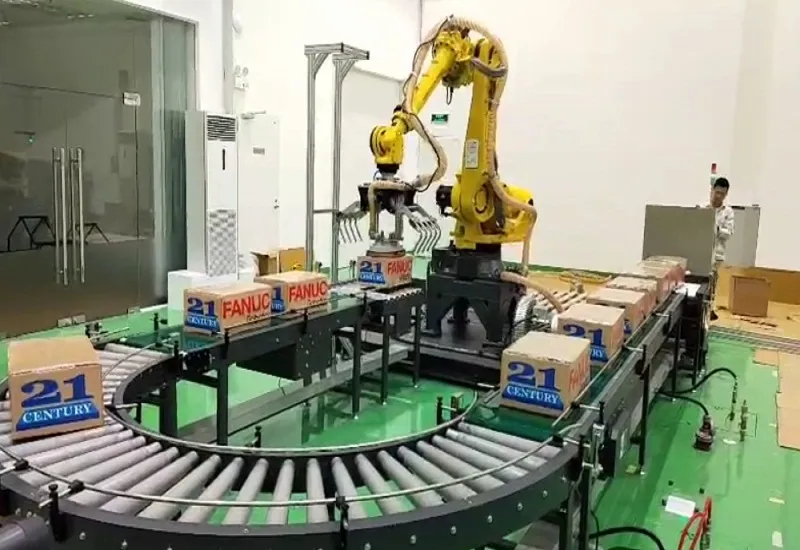Mục lục
Conveyor systems are transforming mining, manufacturing, and logistics operations. They enable the rapid and efficient transportation of a wide variety of materials, making them popular in the material handling and packaging industries. The integration of technology into conveyor systems provides precise control, intelligent movement, increased speed, and flexibility to solve conveying problems in today's manufacturing environments.
What is a Smart Conveyor System?
Smart conveyor systems can track each material with its exact location during material movement. Smart conveyor systems also allow for the transportation of materials with different parameters, such as speed and direction. They can also synchronize with external machines, such as sorting and forwarding a specific size of material in a specific packaging line.
Smart conveyors use the latest automation components to achieve uniqueness compared to conventional conveyor systems. Some of the components include motion control, artificial intelligence (AI), and smart sensors.

Smart Conveyor System Features
Some of the features of smart conveyor systems that make them more advantageous than conventional conveyors include product tracking, collision avoidance, energy savings, predictive maintenance, and reduced downtime.
- Product Tracking
Smart conveyor systems allow individual products to be tracked in real time, including the speed, direction, and location of each material.
This is in contrast to conventional conveyor systems, which detect the presence of materials across the entire conveyor. Conventional conveyors do not track individual products, nor can they detect individual material speeds.
- Collision Avoidance
AI also supports collision-free movement in smart conveyor systems. Additionally, product tracking parameters, such as location and speed, can be used to sort similar materials together. This becomes important when fragile materials are transported on the conveyor.
- Energy Efficiency
Smart conveyor systems offer a great opportunity for energy-saving systems because AI can automatically track each individual material and adjust the conveyor speed output relative to the conveyor load. AI can also shut down conveyor operations to save energy during off-peak periods.
- Predictive Maintenance and Reduced Downtime
Smart sensors and motion control allow smart conveyors to monitor the health of individual equipment and components for predictive maintenance. Technicians can identify and resolve issues or schedule conveyor maintenance during downtime or after the conveyor operation is complete.
This is in contrast to preventative maintenance, which follows a fixed schedule. Scheduled maintenance is results-oriented but can lead to unnecessary downtime. Secondly, if a small-scale problem is discovered during normal operations, waiting for scheduled maintenance can lead to an unexpected breakdown.
Applications of smart conveyor systems:
Smart conveyors are applied in many manufacturing industries to help bring economic efficiency and improve product quality. Smart conveyor systems are used in industries such as:
- Industry of manufacturing, assembling electronic components, auto parts, motorbikes, etc.
- Industry of manufacturing, processing food, beverages, vegetables, fruits, seafood processing, etc.
- Industry of garment, printing, packaging, etc.
- So automatic loading and unloading of goods, warehousing, logistics in Logistics, etc.
The development and implementation of recent digital technologies such as Industry 4.0 have allowed manufacturing and manufacturing industries to increase production capacity in a shorter time, thereby reducing resource expenditure.
Smart Conveyor System Developer
Smart conveyor systems provide Industry 4.0 users with an efficient transportation solution between different departments and locations within a manufacturing facility. They also provide conveying solutions for multiple products using a single system.
The smart conveyor system developed by Intech is a complete conveyor system consisting of standard conveyor modules that have been standardized by Intech to meet international standards. There are also gripper mechanisms, specialized automatic machines in the process and industrial robots.
They are combined with electrical equipment, control equipment and control software developed by Intech engineers to form a fully automated system in production. Depending on each application, developers will provide different appropriate solutions.






